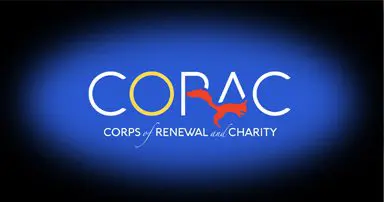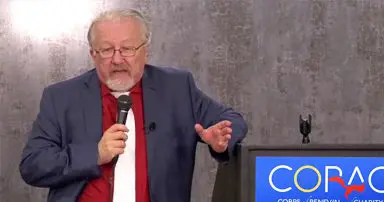(Following is the second part of the Rules of Regency. It was originally published on Aug. 10. 2016. I reprint it here verbatim with no edits. There was no prophecy involved, though I anticipated several events that did not fully manifest until this year. You did not have to be a prophet to see this coming. Certain disorders, when indulged, will lead to very predictable consequences. Consider, as you read this, that it was written and published before Donald Trump was elected and before the left had fully revealed themselves, over four years ago.-CJ)
Following is Part II of the Rules of Regency. You can see Part I here. It is, of course, America-centric, as I am an American and that is where I can have the most immediate impact. It is also, however, a template for any country which seeks to restore a harmonious social order. Some adjustments would have to be made for various local cultures, but the big principles are universal.
Accountability
The American system was set up to make the government accountable to the American people. Once elected, officials would hire their team of people and voters would judge them according to how their team performed.
Now, legislators and executives make big promises that they don’t keep. When voters complain, the officials note that their intentions are good, but they are not allowed to fire the holdover government workers from previous officials – workers who thwart their wonderful plans. Bureaucrats, meanwhile, sometimes joke that presidents come and presidents go, but the bureaucracy goes on forever. Officials have the built-in excuse that there is nothing they can do -and it is harder to fire a bureaucrat than to knock down the milk bottles at the local carnival. It is a good deal for both the officials and the clerks, whose power and perquisites grow while they are accountable to no one. But it is a terrible deal for the public – and for social cohesion. Yet it is called ‘public service.’
Abolish almost all civil service laws and all public employee unions. The American system is not supposed to guarantee jobs for life for bureaucrats – who can then snub their nose at both the officials who are supposed to be their bosses and the people who elect them. Let each official hire and fire, at will, those who will work under him – and then hold him completely responsible at the ballot box for the results. This will return the whip hand to the people who are supposed to be served, not ruled.
It will also make the “sacrifice” that government workers and officials constantly boast of into a reality. To go into government work when it offers no guarantee of security, a person will either have to be so committed to accomplishing a particular task that he will take a break from his real career in order to actually serve – or be so non-politically competent that he holds onto his job from administration to administration by sheer ability. If a person wants job security, he will work for or build a private company that produces real goods and services and real jobs. That would be a true public service.
The reality is that all government workers are parasites of a sort. In most biological systems, some parasites are necessary and good – and form a symbiotic relationship with their host. But when even benign parasites multiply beyond the symbiotic level, they start killing the host. We are long past that point.
There are other structural changes in the political system which would enhance accountability without denying the true masters, the people, their right of collective sovereignty. In the legislature, the House of Representatives was supposed to be a citizen legislature, reflecting the churn of public passions. I don’t like term limits, for that deprives citizens of the right to vote for whom they choose. Rather, I prefer to allow House Members to run for as many terms as they wish – but however many terms they win, there is no pension. If they want a retirement plan, they each have to fund their own. The Senate is supposed to be a haven for experienced professionals, chosen by the states as a check on the unbridled passions of the House. It was a stabilizing element injected into the peculiar American system of a hybrid democratic republic to prevent the instability inherent to democracy. Return selection to the States and offer a pension there. Eliminate most campaign finance laws, except for disclosure of very large donations and to prevent foreign influence. Campaign finance laws, if truth in advertising applied, are incumbent-protection schemes. Appoint federal judges to a ten-year term rather than an unreviewable lifetime.
Subsidiarity
The principle of subsidiarity holds that nothing should be done by a larger and more complex organization which can be done as well by a smaller and simpler organization. St. John Paul emphasized this principle in his 1991 Encyclical, ‘Centesimus Annus,’ as a corrective to the statism which was disfiguring the application of authentic principles of social justice.
There are many problems with centralization. Three that are critical here are that:
1) It is inefficient
2) It enfeebles and disables the means that are efficient, treating them as competitors for resources.
3) It is fertilizer for a massive corruption that is beyond the control of ordinary people.
St. John Paul, in his classic, concise elegance, said it, “…leads to a loss of human energies and an inordinate increase of public agencies which are dominated more by bureaucratic ways of thinking than by concern for serving their clients and which are accompanied by an enormous increase in spending.” Read his full Encyclical to get a solid primer on the subject (which will help in understanding the rest of this small section.)
Big unwieldy centralized agencies do not take into account unique local needs and peculiarities, insisting instead on a one-size fits all approach – that often does not fit any. Meantime, it saps the life and energy out of those smaller, more local agencies and volunteer associations that do handle problems well.
Centralization, accompanied by a lack of public accountability, is a hothouse for virulent corruption. Progressives think that corruption can be ended by a massive centralized regulatory regime. American founders understood that corruption is endemic to much of human nature – and that centralization just made corruption massive and impervious to public oversight. Their system of rigorous accountability and equally rigorous subsidiarity made for a self-policing and healing system. With numerous, competing centers of localized authority, corruption would be localized. When it became endemic in one center, it would be advantageous to the ambitious in another center to expose and uproot it. Thus, though corruption is always with us to some extent, it would keep it local, easily uprooted, and make it in the interest of the ambitious to uproot it.
Therefore, all powers that are not explicitly granted to the federal government would be returned to the states. As I mentioned under the “Federalism” section, most regulatory agencies would be dismantled or reduced to boards whose sole purpose is to arbitrate disputes between the states over an overlapping issue. Big internal crises that are beyond the Constitutional power of the federal government would, upon petition by a majority of the states or two-thirds majority of the house, lead to the creation of a temporary federal task force to address the problem, with a specific date of expiration of not longer than 10 years. Once again, public ‘servants’ would have to actually serve and make sacrifice rather than rule and call their unaccountable sinecures ‘sacrifice.’
Volunteer associations would be encouraged and made easy to begin, rather than regulated to death and made to heel to a state’s political preferences.
Since Congress would have less to do (no longer deciding winners and losers in the field of commerce and public policy questions unrelated to its legitimate authority) the size of Congressional staffs and the profusion of lobbying would be dramatically decreased. That would also give officials time to pay serious attention to their legitimate duties rather than distracting the public with what type of light bulbs they will be allowed or what size soft drinks they may purchase.
The federal income tax will be abolished as a bad experiment that intruded on the freedom of all and was weaponized to target dissent. Alternate means of taxation, through sales and excise taxes among others will be found. If taxes are tied to productivity and commerce, it will give government officials incentive to promote productivity and commerce rather than strangling it.
Read Alexis de Tocqueville’s “Democracy in America,” a concise two-volume explication of the philosophical underpinnings of the American experiment in a hybrid democratic republic to understand why American worked so well for so long – and how to restore that framework.
Justice
In the first place, the law should apply equally to all, both great and small. The routine practice of the Congress of exempting itself from rules it imposes on lesser mortals will cease. It will be allowed to impose no rules that are not Constitutionally enumerated to its authority.
In the short term, our society has been divided into levels of division that led to sudden mass slaughter in Rwanda. A few large principles are required to keep that division from exploding into massive violence.
When large segments of society seek to get their way by violent aggression, that aggression is fueled, not quenched, if the response is not resolutely decisive. When large numbers of political office holders seek to weaponize the law to punish their opponents or those who merely disagree with them, it undermines the legitimacy of and public respect for the law, planting seedlings of violent opposition when that becomes the only effective means of redress of legitimate grievances.
Therefore, substantial early arrests must be made of public officials who have weaponized the law to punish dissent. That means a lot of federal agents, especially high officials in the IRS, will be going to jail. Also headed for jail are those state attorney generals who seek to make it a felony to disagree with them politically – right now most publicly on ‘climate change.’ Judges and human “rights” commissioners who have imposed penalties on Christians for simply living their faith – refusing to participate in offensive ceremonies, but discriminating against no one – will not just lose their office, but go to jail for a time. I have always loathed abuse of public power against ordinary citizens. A small number of early, vigorous arrests should get the message across and take the wind right out of this modern penchant.
No one shall be arrested during the time of emergency for merely advocating an opinion, but protests that depend on rioting will result in mass arrests of the rioters. Those who try to deprive others of their civil liberties will be arrested. Radicals on campus and in such movements as BLM will be given the opportunity to suffer for their beliefs if they express them violently or hinder others from the free expression of competing beliefs.
When disorder is small and sporadic, the public interest and safety is usually best-served by the incarceration under criminal law of the few who commit actual crimes. When it is widespread and an entire culture has degenerated into disorder, the primary goal is the re-establishment of a stable public order and the reintegration of the offenders into that order. That is why, after the Civil War, Abraham Lincoln did not seek to punish and jail rebel leaders, but to knit them back into the common family the nation was intended to be.
The need for temporary jails will be great in order to check the abuses of public corruption and arrogance and the violent aggression of rioters. But the duration of incarceration for such offenders must only be for the duration of the Storm. The purpose of incarceration is to prevent an explosion of violence while society is rising to the challenges of the Storm and to re-knit it into a common culture once again. All such offenders should be released within six months of the Rescue, with a return to normal criminal law – with the exception that those who abused a public position of trust to punish enemies may be permanently barred from holding any office of public honor or authority.
























0 Comments